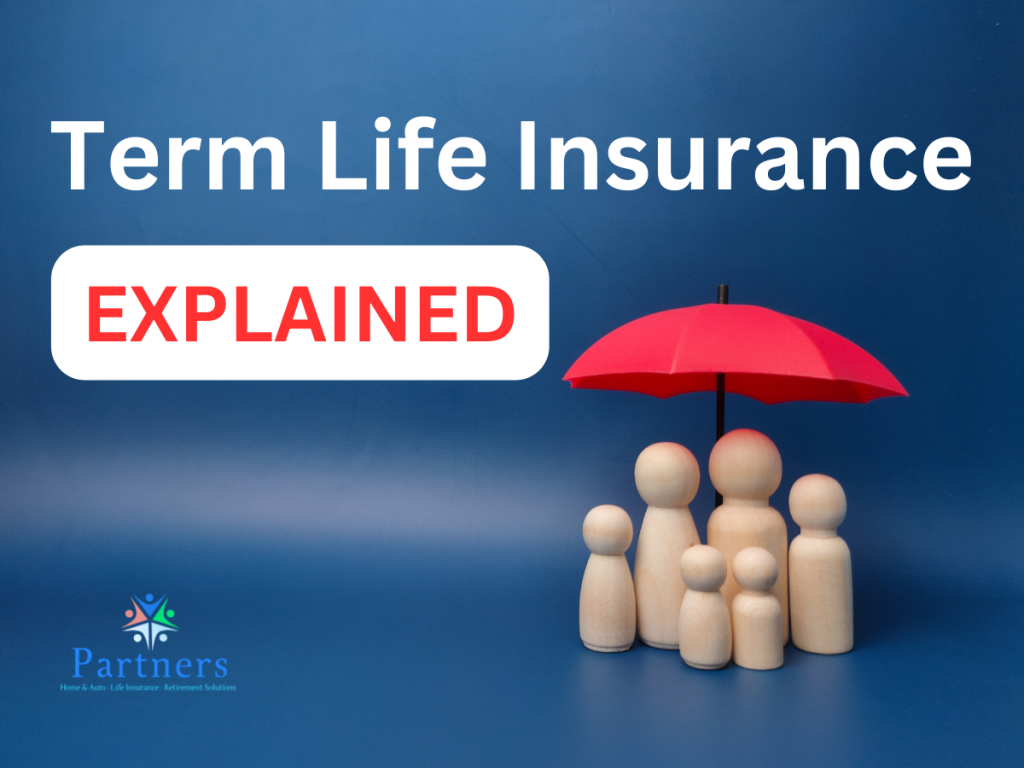
When it comes to protecting our loved ones, we want to ensure their financial well-being even after we’re gone. That’s why life insurance is an important consideration for many people. A Term life insurance policy may be a good fit for you. This affordable option provides coverage for a fixed term and is an excellent choice for those who want to provide financial security for their families without breaking the bank.
What is Term Life Insurance?
Term life insurance is a type of life insurance policy that provides coverage for a predetermined period, usually 10 to 30 years. During this term, you pay a premium, and if you pass during this time, your beneficiaries will receive a death benefit.
The longer the term the higher the premium you’ll pay. A 10 year term will cost less than a 30 year term.
If you don’t pass during the term, the policy will expire, and you won’t receive any money back unless you’ve added a return of premium rider. This option allows you to get back the premiums you’ve paid if you outlive the policy’s term.
Who Should Consider Term Life Insurance?
This is an excellent option for anyone who wants to protect their family’s financial future without spending a lot of money. It’s especially suitable for those who are just starting out in life, such as young couples who have taken out a mortgage or have young children. However, you can still purchase this policy later in life.
It provides peace of mind that your family will be financially taken care of should something happen to you. Like a savings account, a term insurance policy should be a minimum base to your financial plan.
What Are the Benefits?
There are many benefits, including affordability, flexibility, and simplicity. Because the coverage is for a set term, premiums are much lower than other permanent life insurance policies. This makes it an affordable option for people who may not be able to afford higher premiums for whole or universal life insurance policies.
Additionally, many term life policies come with the option to convert to permanent coverage, which can provide additional flexibility.
What Are the Differences Between Term and Permanent Life Insurance?
While term life provides coverage for a set number of years, permanent life insurance policies provide coverage for a lifetime. There are different types of permanent life insurance, including whole life, universal life, and variable universal life.
These policies provide lifelong coverage, but premiums are much higher. Permanent policies also offer additional benefits, such as cash value accumulation, which can be borrowed against or used to pay premiums.
Will I qualify?
The two main factors in qualifying for a policy are age and health. The older you are the shorter the terms that will be offered to you. For example, if you’re 50 years old you may not be able to get a 30 year term policy but you may qualify for a 20 year term.
Your health also determines eligibility. Many common minor health issues such as high blood pressure and being moderately overweight typically won’t prevent you from getting a policy. They will however, result in a higher premium.
Final thoughts
Term life insurance is an excellent choice for people who want to provide financial security for their families without breaking the bank. Premiums are affordable, and the coverage is simple to understand.
While it doesn’t provide lifetime coverage like permanent policies, it’s an affordable way to protect your loved ones during a specific time. Before choosing a policy, it’s essential to consider what type of coverage would be the best fit for your needs.
Consider talking to a life insurance professional to help you choose the policy that’s right for you. Check out this life insurance calculator to help you figure out how much death benefit you need.
Frequently asked questions
A life insurance policy with a predetermined expiration date. It only pays the death benefit if you pass away before the policy expires.
It should be a minimum base to everyone’s financial plan.
Eligibility will depend on a combination of your age and health. The older you are, the more difficult it can be to qualify. However, typically most people can qualify for a policy in the absence of major health issues.
It really depends on your personal situation. Term life insurance costs significantly less than whole life insurance but doesn’t build any cash value on the money you put into it. Your stage of life and budget are important factors to consider.
Related articles
Life Insurance Calculator
What is an Umbrella Insurance Policy?
